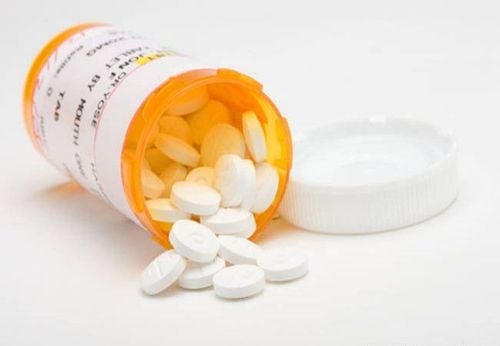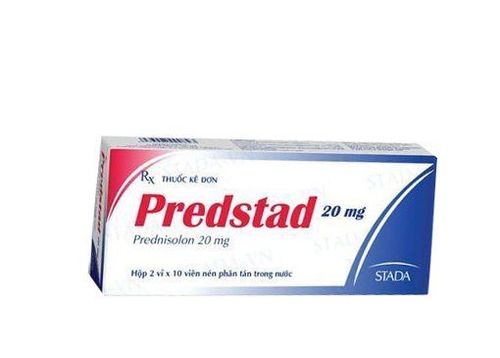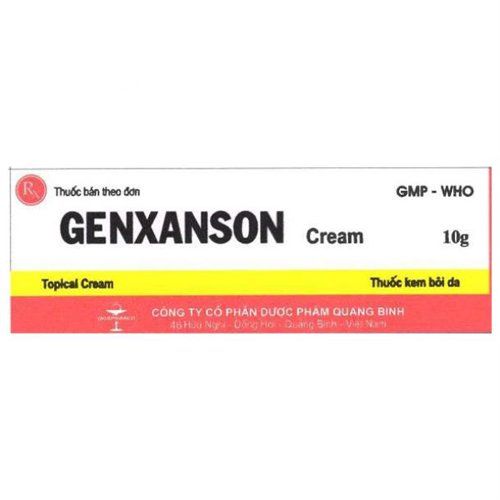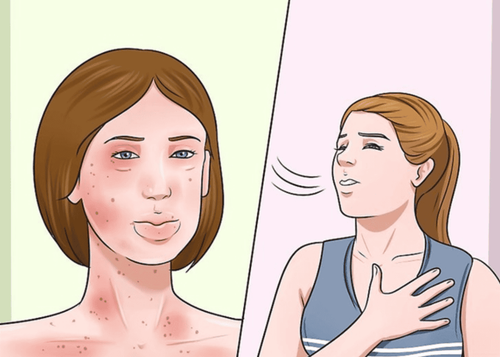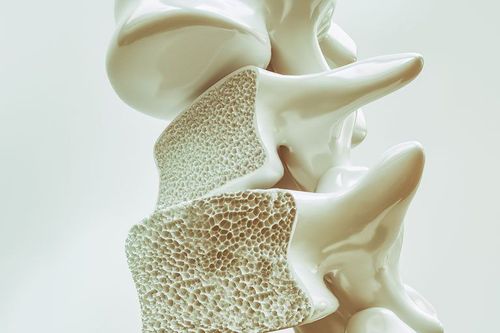This is an automatically translated article.
The article was professionally consulted by Pharmacist Cao Thanh Tu, Faculty of Pharmacy - Vinmec Times City International Hospital.Corticosteroids are a group of drugs indicated in many different diseases due to their anti-inflammatory, anti-allergic, and immunosuppressive effects. Because medications often provide rapid relief of symptoms, corticosteroid abuse is quite common. Many patients have experienced severe side effects due to inappropriate use of this class of drugs.
1. What are corticosteroids?
Corticosteroid (full name is glucocorticoid) is an anti-inflammatory drug indicated in many different diseases. Corticosteroids used in the treatment have similar effects to hormones produced by the adrenal glands (two small glands located above the kidneys).On the market, drugs containing corticosteroids are produced in many different forms:
Tablets (oral corticosteroids) Direct injection into the blood vessels, joints, muscles Inhaled through the mouth Nasal spray Liquid form Use with nebulizer Cream, gel, ointment.... for topical use (for external application, eye drops, nose, ear....)
2. What type of corticosteroid is commonly used in treatment?
Common types of corticosteroids in the composition of the drug are: hydrocortisone, prednisolone, prednisone, methylprednisolone, triamcinolone, fluticasone, beclomethasone, betamethasone, dexamethasone, clobetasone, budesonide...3. In what cases are corticosteroids used?
Corticosteroids are used in the treatment of many different diseases, such as:Autoimmune diseases (such as rheumatoid arthritis, Crohn's disease, lupus....): diseases in which the body's immune system Systemic defense against infection) attacks on healthy tissues and organs Bronchial asthma, chronic obstructive pulmonary disease Acute gout attacks Nausea and vomiting: oral corticosteroids may be used Used together with other medicines to prevent nausea and vomiting caused by cancer drugs Adrenal hormone replacement when the body does not produce enough of these hormones on its own. Prophylaxis of transplant rejection: Corticosteroids can be used with other drugs to prevent the immune system from attacking the transplanted organ (eg, liver, kidney....) Severe allergic reactions: used in Short time to relieve severe allergic reactions Some skin conditions: eczema, psoriasis, rash, mild irritation from insect stings...

Corticoid dùng đường uống có thể được sử dụng cùng với các thuốc khác để dự phòng buồn nôn và nôn do thuốc điều trị ung thư
4. What are the side effects of corticosteroids?
Short-term use of corticosteroids (1-2 weeks) usually does not cause serious side effects. Some mild side effects that may be encountered with short-term use include: stomach irritation, increased appetite, trouble sleeping.Side effects are more likely to happen if you take the drug for a long time or take it for a short but repeated course. In general, the higher the dose, the greater the risk of side effects. Therefore, if you need long-term corticosteroid treatment, your doctor will consider the lowest possible dose that will keep your symptoms under control. Some diseases require higher doses than others to control symptoms. Even for the same disease, the dose varies from person to person and varies from person to person.
Some serious side effects can be associated with prolonged use of the drug, including:
Dilution bone Increased risk of infection Hypertension Increased blood sugar Increased risk of peptic ulcers Cataracts, glaucoma, glaucoma Slow wound healing, thin skin, easy bruising Slow growth in children Syndrome Cushing (the phenomenon of the round face like the moon, fat deposition in the neck and back while the limbs are atrophied) In particular, if using corticosteroids for a long time, there is a risk of atrophy of the adrenal gland because this gland is accustomed to the condition. If there is a drug in the body, it will stop working and no longer maintain the normal hormone secretion function.
Therefore, if you need to use corticosteroids for a long time, you should re-examine and perform periodic tests as prescribed by your doctor to detect early side effects (if any)
5. How should you take corticosteroids?

Với corticoid đường uống nên dùng với thức ăn để hạn chế kích ứng dạ dày
Do not stop suddenly if you have been taking corticosteroids for a long time. Stopping the medication suddenly can cause serious, even life-threatening, symptoms. Your doctor will show you how to slowly reduce your dose of the medicine before stopping it altogether. Usually this process takes several weeks to give the body enough time to restore its natural hormone production.
With topical corticosteroids or ointments: use only a small amount enough to cover a thin layer on the diseased skin. This helps prevent too much of the drug from being absorbed into the body and possibly causing side effects. Do not bandage the application area. Avoid applying to broken, non-healing skin or areas that are frequently rubbed.
Inhaled corticosteroids usually do not cause serious side effects, some common side effects (oral thrush, hoarseness) can be easily prevented by following the correct inhalation technique and rinsing the mouth after taking the drug.
Please dial HOTLINE for more information or register for an appointment HERE. Download MyVinmec app to make appointments faster and to manage your bookings easily.




